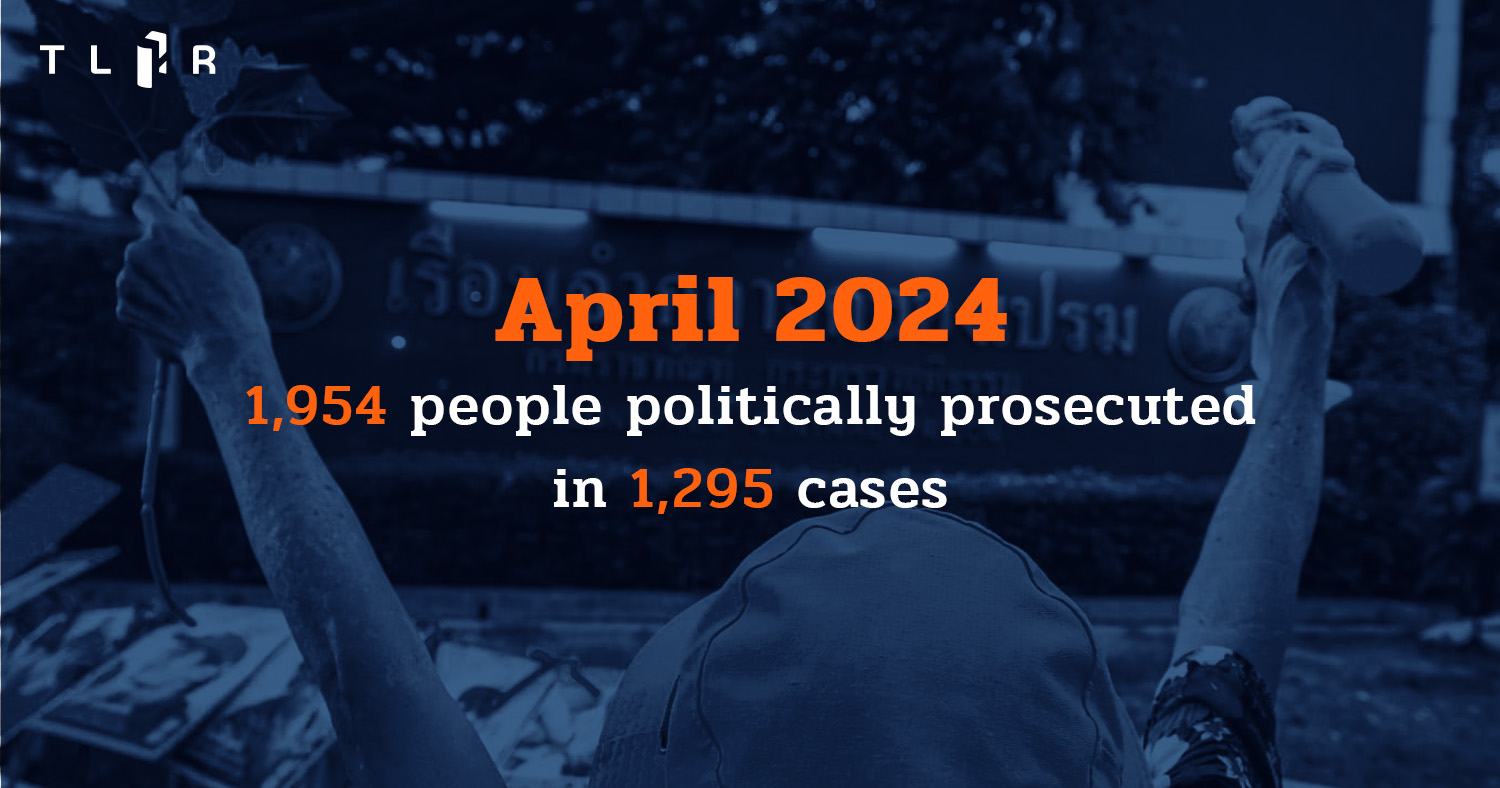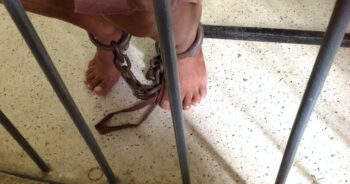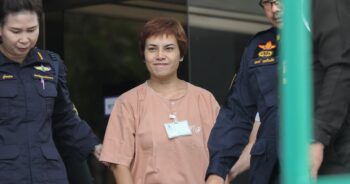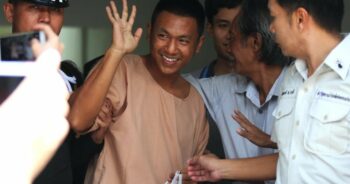Last April, there was a slight increase in political cases, with two additional Section 112 cases. Still, we saw gradual indictments and verdicts issued by the court in existing cases. In the past month, judgments have been rendered in at least two Section 112 cases, resulting in one additional individual being imprisoned, namely Pornchai in Chiang Mai. Meanwhile, witness examinations were conducted in other cases concerning public assemblies from 2020-2022. Courts have delivered rulings to either acquit or convict the defendants in four cases concerning the violation of the Emergency Decree.
According to Thai Lawyers for Human Rights (TLHR), from the Free Youth protest on 18 July 2020 until 30 April 2024, at least 1,954 individuals have been charged for participating in public assemblies or expressing their political opinions in 1,295 cases. Compared to March, two more cases have been added.
Altogether, there have been at least 4,002 cases, although some of them contain multiple offenses.
Prosecution statistics in key offenses;
1. “Lèse-majesté” pursuant to Section 112 of the Criminal Code: at least 272 individuals in 303 cases
2. Sedition pursuant to Section 116 of the Criminal Code: at least 152 individuals in 50 cases
3. Violations of the Emergency Decree: at least 1,466 individuals in 669 cases
(Statistics since May 2020 when the offense was invoked against people engaged in political activities. In the past month, TLHR noticed that we double-counted the number of individuals facing multiple cases. Consequently, we have adjusted the data and, as a result, the number of individuals facing charges has slightly decreased, although the number of cases remains the same.)
4. Violations of the Public Assembly Act: at least 181 individuals in 99 cases
5. Violations of the Computer Crimes Act: at least 201 individuals in 224 cases
6. Contempt of court: at least 43 individuals in 25 cases, and insult of the court: at least 34 individuals in 10 cases
Of the 1,262 cases, 561 have reached final verdicts. 734 other cases remain at different stages of the judicial procedure.
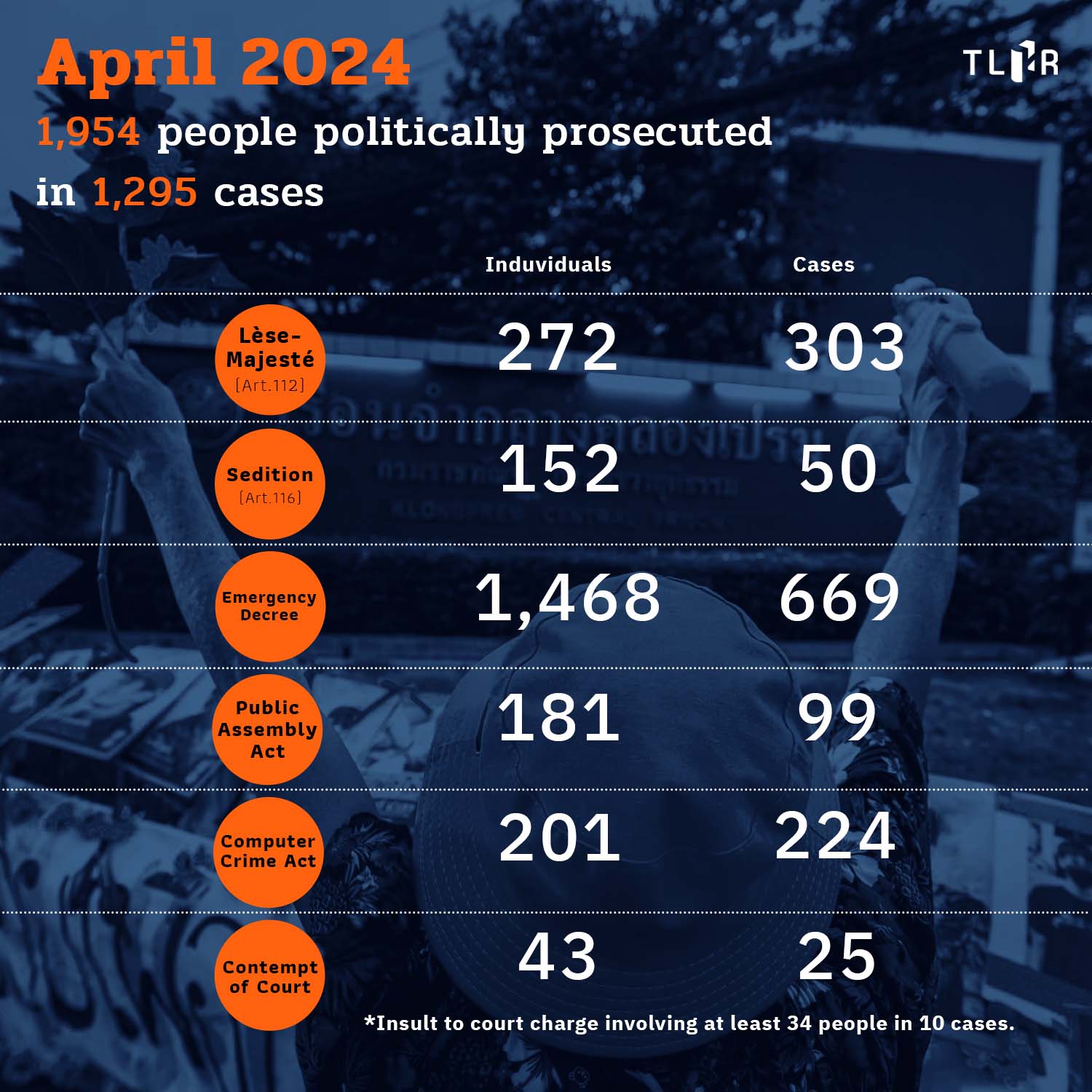
.
The prosecution trend in April 2024 is illustrated by key incidents as follows;
Two new Section 112 cases: An uptick of cases in the South while more individuals are detained
Not too many new lawsuits were filed in the past months, except for the two new cases under Section 112 (lèse-majesté) of the Criminal Code. This has increased the number of prosecution related to Section 112 to at least 303 cases, according to available information.
Regarding the two new cases in April, both stem from Facebook posts. One case was brought by the Technology Crime Suppression Division against an individual living in Chiang Mai for publishing one post on Facebook in 2021. The individual had already acknowledged his charges before he contacted TLHR. We were informed that the charges were made and the inquiry had taken place without the presence of the person’s attorney. We shall monitor further proceedings in the case.
In the second case in Phatthalung, a resident in Buriram was summoned to answer to charges as the case had been filed by core members of the pro-monarchy Pracha Bhakti Group who live in Phatthalung, similar to a few other cases reported in the local area. In this case, the inquiry official issued a summon to the suspect to answer to charges in May.
There has been an increase in Section 112 cases in the South this year since several regions in the provinces have seen many complaints filed by aforementioned pro-monarchy groups in online cases.
.
.
Regarding Section 112 proceedings in court in the past month, verdicts were delivered in two cases, one in the court of first instance and another in the court of appeals.
The first verdict was delivered in the case against Arnon Nampa for the speeches he gave during the ‘Casting spell of the people’s protectors’ protest, aka #HarryPotter2 in front of the Bangkok Art and Culture Centre (BACC) on 3 August 2021. Intense witness examinations took place during the hearings with evidence being introduced to attest to the change of power during the reign of King Rama X which could be a breach of the principles of democracy with the King as Head of the State, and to illustrate that his criticism and advocacy for monarchy reforms were made with good intentions.
The Bangkok South Criminal Court ruled that the speeches made by Arnon were found to be incriminating to King Rama X and deemed defamatory. The Court reiterated that Section 112 does not contain grounds for exemption, unlike defamation laws applied to ordinary persons which provide grounds for exemption of liability when such opinion is made in good faith, or when it is deemed a fair criticism, or a waiver of punishment is given to the statements which are proven to be true. The Court convicted and sentenced Arnon to three years of imprisonment. Given his valuable testimony at trial, his sentence was reduced to two years. He was also convicted and sentenced to 20 days in prison for violating the Emergency Decree. His total prison sentence is two years and 20 days.
This is the third Section 112 case in which Arnon has been found guilty, bringing his total prison sentence to 10 years and 20 days. He is appealing the verdict in all three cases. Still, he faces 11 more lèse-majesté cases.
The many prosecutions against activists or speakers at public assemblies in 2020-2021 are still a key issue that warrants close attention.
.
.
In another case, Pornchai Wimonsuppawong, a member of the Pakakeyaw tribe, was indicted in Chiang Mai for allegedly publishing four Facebook posts. The Court of Appeals Region 5 upheld the verdict of the lower court, which found him guilty of all charges and sentenced him to three years of imprisonment for each of the three counts, a total of 12 years. The Supreme Court later denied his bail request, reasoning that the Appeals Court upheld the verdict and his provisional release could cause a flight risk.
As a result, Pornchai remains detained in custody pending appeal in the Supreme Court. Since early April, he has become the latest person to be detained for violating Section 112. Altogether, the number of individuals being detained for committing lèse-majesté is at least 27.
There has been an uptick in indictments against individuals facing Section 112 charges. In the past month, “Bank-Ta,” were indicted for publishing a photo of them holding a piece of paper with writing in front of the King’s portrait in January 2024. In another case, “Rung-Bee,” graduates from Thammasat University, were indicted for allegedly publishing posts on the Facebook Page of the United Front of Thammasat and Demonstration in 2021.
In a Section 116 case, “Tawan-Frank” were indicted for allegedly honking at the passing royal motorcade, and both have been denied bail until now while pending trial by the Criminal Court.
.
.
No new lawsuits related to public assemblies, although several witness examinations were conducted in existing cases
No additional lawsuits concerning public assemblies were made in April. Progress is seen in the arguments made in court proceedings in cases stemming from the political assemblies during 2020-2022. We are also seeing witness examinations in multiple cases, including the case of public assemblies against the One China Policy during APEC2022 (completed the witness examination; the Pathumwan District Court is scheduled to deliver its verdict on 15 July 2024), the case to hold the authorities to account for firing rubber bullets at “Payu Dao Din” causing him to lose his eyesight (completed the witness examination; the Pathumwan District Court is scheduled to deliver its verdict on 12 June 2024), and the case against more than 45 members of Wevo who were arrested at the Major Cineplex Ratchayothin in March 2021 (witness examination is still ongoing in the Criminal Court, at least until May).
In the past month, the Court has also ruled in four cases concerning the violation of the Emergency Decree and public assemblies, two of which are with the court of first instance, and the other two are with the Appeals Court. Two were dismissed while in the other two cases, the defendants were found guilty.
The North Bangkok District Court has acquitted three activists related to the #1Sept2021 assembly in front of the Palang Pracharat Party HQ. The Court found that, given the the number of people involved, it was not possible to determine if the defendants were participants or just passersby, or if the number of participants exceeded the legal limit of 25 or not. In addition, it appeared that all persons present wore face masks that were adequate for the prevention of the outbreak of the disease.
In the case against Witchaphat Srikasipan, a member of Wevo, related to the public assembly in front of the Myanmar Embassy on 1 February 2021, the Appeals Court upheld the Court of First Instance’s verdict to dismiss the charge under the Emergency Decree. However, he was found guilty of violating the Communicable Disease Control Act since the defendant should have been aware of the communicable disease control authorities’ notification urging him to call off the gathering, His failure to comply with the authorities resulted in a fine of THB 10,000.
One of the two convictions by the courts includes the case against Arnon Nampa for his aforementioned speeches at the Harry Potter 2 rally. The Court deemed him to be the organizer of the event, even though he simply published a post to invite people to join the rally. The Court ruled that he failed to ensure that the participants were kept within a safe distance from each other. He was therefore convicted under the Emergency Decree and sentenced to one month which was reduced to 20 days given his valuable testimony. Arnon will further appeal the verdict since he has been arguing all along that he was not the event’s organizer and was simply invited to speak.
Another case involves Car Mob Surin, with the Appeals Court Region 3 upholding the Court of First Instance’s verdict finding the two defendants guilty as organizers. They were each fined THB 20,000.
.
.
In April, prosecutors were preparing for more indictments in cases related to public assemblies in 2020. A notable case involves the public assembly at the Tha Phae Gate in Chiang Mai on 29 July 2020, which involves 38 defendants despite the fact that several of them were simply there as participants. After 3 years of waiting for on order from the prosecutor, the Attorney General has decided against prosecuting the case on charges related to Section 116 (sedition), but instead decided to prosecute them for violating the Emergency Decree.
As news about the impending indictment at the Chiang Mai District Court broke out, some suspects in the case have again submitted a letter to demand fair treatment from the prosecutor since the prosecutor has previously decided against prosecuting cases of similar nature in Chiang Mai and in other areas. It calls into question the standard of the prosecutor’s decision to prosecute since after all, these cases do not serve the public interest.
We are seeing varying trends from prosecutors and courts pertaining to the management of Emergency Decree cases that relate to the public assemblies amidst the outbreak of Covid-19. Meanwhile, Courts have tended to dismiss such cases more than to convict the defendants, with the ratio being 3:2. Although there has yet to be a legal precedent at the Supreme Court level, it is expected that in the latter half of this year, the Supreme Court should deliver a first ever ruling on such cases.
Meanwhile, over 400 Emergency Decree cases are ongoing, stemming from past public assemblies. This has caused a burden to many activists and members of the public who have to engage in their defense.
